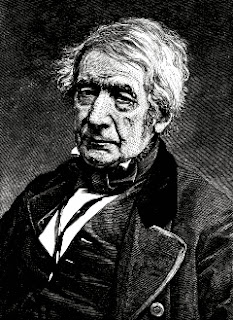Yr Aflonyddwch Mawr has been investigating why the biggest Land Sale in England and Wales of Welsh Land by an English Company has been largely ignored by Nationalists and Socialists in Wales.
It speaks to some pretty fundamental political weaknesses of both the Nationalist and Socialist movements in Wales which was why Yr Aflonyddwch Mawr was established in 2012 to begin to rectify.
The 23,000 acre Vyrnwy Estate was put on the market in 2010 by Severn Trent Water Authority but however despite lengthy negotiations over its sale it failed to secure a buyer and was taken off the market in 2013.
Severn Trent Water Authority
In 1973 the Water Act brought together the many water and sewerage companies in England and Wales into ten water authorities, each responsible for water supply, sewage treatment and river protection within its area.
Each was led by a board with representatives from local authorities and central government.
Severn Trent Water Authority was one of those ten authorities.
By the mid 1980s, however, the government had decided to privatise the water industry.
The ten water authorities passed into private ownership in 1989.
Lake Vyrnwy Dam
The City Council of Liverpool were looking for a site for a new reservoir to provide more water for the ever expanding population of the great, sprawling urban area they controlled along the banks of the Mersey.
Various sites were under consideration in northern England and Wales, but in most cases some snag prevented them from being suitable.
In the summer of 1877 Mr Deacon, the city engineer of Liverpool, arrived in Llanwddyn to investigate the possibility of damming the river Vyrnwy at a point somewhere below the village to create a large, artificial lake capable of holding many millions of gallons of water.
Dr George Deacon (1843–1909) began the design of the Vyrnwy Dam in 1879 at the age of 36. In 1890, following Vyrnwy, he founded an engineering practice in London which subsequently became Sir Alexander Binnie Son & Deacon, then Mr Binnie and Partners. Its present-day successor is now Black & Veatch.
Dr Deacon was instructed to prepare the Parliamentary Plans for the scheme in 1879. The dam construction started in 1881 and was completed seven years later in 1888.
It was the first large stone-built dam in the United Kingdom, and is built partly out of great blocks of Welsh slate. When built it cost £620,000, equivalent to £62,000,000 in 2015 to supply Merseyside and Liverpool with water.
United Utilities
The principal bidder for the Vyrnwy Estate was United Utilities another English company.
However, United Utilities withdrew from the sale which led to the land being taken off the market in June 2013.
It had been put up for sale in 2010 and in 2011, United Utilities and RSPB Cymru were named preferred bidders for 12,000 acres of agricultural holdings on the estate.
FIM Sustainable Timber and Energy LP was also named as the preferred bidder to develop the 5,000 acres of commercial woodland.
Local Campaign to bring Land into Welsh ownership
There was a praiseworthy attempt to raise money for a Welsh People buy out of Lake Vyrnwy Estate in 2010 but either through weak organisation or lack of support for the campaign or a combination of both the campaign for Welsh ownership of Vyrnwy Estate never got off the ground.
Given that this is the largest land sale in England and Wales of 23,000 acres - it is strange and some might say monsterous that it has not been taken up by Plaid Cymru as a campaigning nationalist issue.
Severn Trent and RSPB still have biggest package of land some 11 891 acres and we believe William Pears a London financial company has acquired at least 5000 acres.
I am still investigating the remaining acres which I believe are woodland and lake which may have gone to FIM Sustainable Timber and Energy LP.
Yr Aflonyddwch Mawr will commence a campaign to raise awareness of the Welsh Land issue around Vyrnwy Estate as part of our campaign for a Welsh Land Act in 2016.
Since our foundation in 2012 Yr Aflonyddwch Mawr has called for a Welsh Land Act simlar to Scottish Land Act 2003 with priority right to buy for local communities.
Scotland has moved on and is currently preparing a much better Second Land Act but Wales has not even addressed the question of a First Welsh Land Act.
The Vyrnwy Estate Land Sale provides us with an opportunity to highlight the question of the need for a Welsh Land Act and what it would mean in practice.
Firstly with a Welsh Land Act and the Vyrnwy Land Sale - the Welsh local community or Nation would have been the preferred bidder by law and not the English Company United Utilities as was the recent case.
Of course we would still need to make the case as socialists and nationalists why the nation/local community should spend 11 million pounds acquiring the Vyrnwy Estate for the nation.
The 125 years leases on the properties on the Estate like the farms would have been offered to the tennents first and not sold to London financial institutions like William Pears if a Welsh Land Act was in existence.
.
The Forestry and woodland instead of going to a commercial company could have become a community resource.
Therefore The Vyrnwy Estate provides us with many examples of why we need a Welsh Land Act.
We need to find creative ways to publicize these issues and the necessity for a Welsh Land Act.
The Yr Aflonyddwch Mawr campaign slogan for 2016 will be :
TIR CYMRU YW EFYRNWY/EFYRNWY IS CYMRIC LAND.






